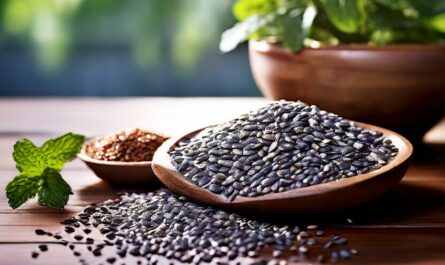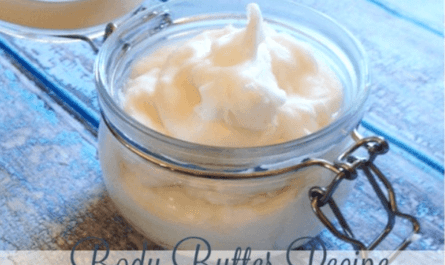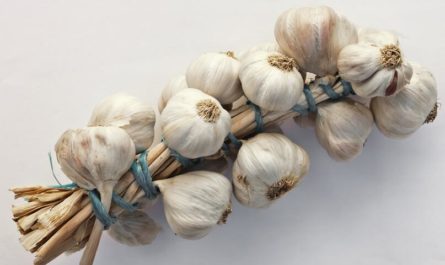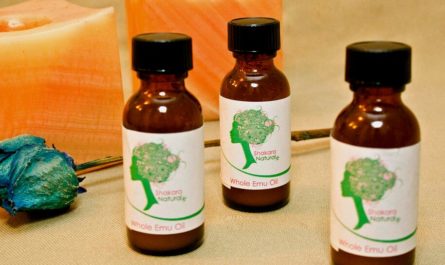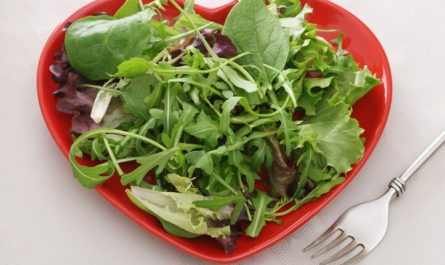Dandelion is often considered a pesky weed. However, it is actually a powerful medicinal herb that has been used for centuries for its various health benefits. This vibrant yellow flower, found in many parts of the world, is packed with essential nutrients and compounds. From its roots to its leaves and flowers, every part of the dandelion plant offers unique health benefits. In addition, they are also a common ingredient in herbal teas and supplements. In this article, we will explore 14 fantastic health benefits of dandelion.
Nutritional Benefits of Dandelion
Dandelion is a rich source of vitamins and minerals essential for good health. One cup of raw dandelion greens contains:
- Vitamin K: 535% of the RDI (Recommended Daily Intake)
- Vitamin A: 112% of the RDI
- Vitamin C: 32% of the RDI
- Iron: 10% of the RDI
- Calcium: 9% of the RDI
- Potassium: 9% of the RDI
Dandelion is also a good source of antioxidants, which help to protect the body against damage caused by free radicals. (Resource)
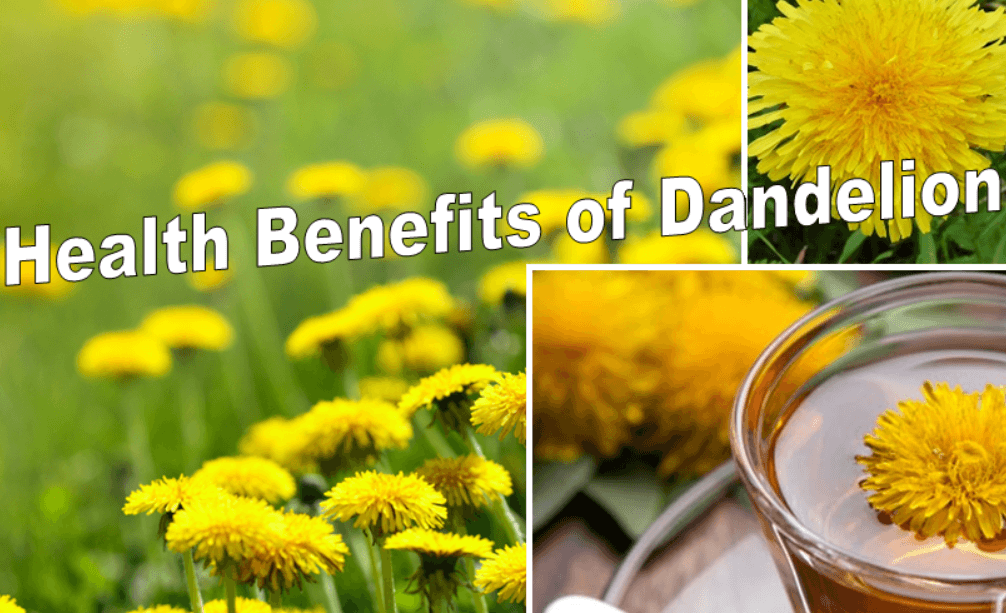
14 Amazing Health Benefits of Dandelion
1. Improves Digestion
Dandelion has been traditionally used for its digestive health benefits. Dandelion contains compounds that may help stimulate digestion, such as bitter compounds called sesquiterpene lactones. These compounds can help increase the production of digestive enzymes and bile.
In addition, dandelion has natural diuretic effects, which means it can help increase urine production and reduce water retention. This can be especially helpful for people who experience bloating and discomfort due to fluid buildup in the digestive tract.
One study found that dandelion extract could help improve symptoms of indigestion, such as bloating and stomach discomfort.
2. Supports Liver and Kidney Health
Dandelion root has been found to have several benefits for liver and kidney health. It contains antioxidants that can protect the liver from oxidative stress and promote optimal functioning. This is why dandelion root has been traditionally used as a liver tonic in many cultures.
A study conducted in Korea found that dandelion extract could prevent alcohol-induced liver damage in both liver cells and mice. This indicates that dandelion root could have a protective effect on the liver, possibly due to its anti-inflammatory properties and ability to fight oxidative stress.
Dandelion also has natural diuretic properties, which means it can increase the frequency of urination. This can help to flush out toxins and prevent the buildup of waste products in the body.
3. Reduces Inflammation
Dandelion has anti-inflammatory properties that may help reduce inflammation in the body. Dandelion contains various bioactive compounds, such as flavonoids and polyphenols, that have been shown to have anti-inflammatory effects.
One study conducted on rats found that dandelion leaf extract had a significant anti-inflammatory effect, reducing the levels of inflammatory markers in the blood.
Another study conducted in humans found that dandelion root extract could significantly reduce the levels of C-reactive protein (CRP), a marker of inflammation in the body. The study also found that dandelion root extract could improve liver function and lipid profiles in the participants.
4. Supports Immune System
The immune system protects the body against infections, diseases, and other harmful pathogens. Dandelion is a rich source of vitamins and minerals, including vitamin C, vitamin A, vitamin K, and iron, all of which play essential roles in maintaining a healthy immune system.
Vitamin C, in particular, is known for its immune-boosting properties and ability to protect against oxidative stress, which can weaken the immune system.
In addition, dandelion contains various bioactive compounds, such as polysaccharides and flavonoids, that have been shown to have immune-modulating effects.
5. Promotes Weight Loss
Dandelion is a natural diuretic that can help remove excess water and salt from the body. This can lead to a temporary decrease in body weight.
Dandelion also contains compounds that may help suppress appetite and reduce calorie intake. In addition, dandelion may have potential benefits for improving digestion and metabolism, which can contribute to weight loss.
One study found that dandelion root extract could improve insulin sensitivity and glucose metabolism, which are essential factors in maintaining a healthy weight.
6. Reduces High Blood Pressure
Dandelion may have potential benefits in improving high blood pressure, also known as hypertension. Hypertension is a common condition where the force of blood against the walls of arteries is consistently high, leading to serious health problems over time.
Dandelion has natural diuretic properties, which means it can increase the frequency of urination and help remove excess salt and water from the body. This, in turn, can help reduce blood volume and ultimately lower blood pressure.
In addition, dandelion contains potassium, a mineral that helps regulate blood pressure by counteracting the effects of sodium. Low potassium levels are often associated with hypertension, so consuming potassium-rich foods like dandelion may be beneficial.
7. Supports Eye Health
Dandelion contains various bioactive compounds, such as carotenoids, lutein, and zeaxanthin, that are important for eye health. Carotenoids are pigments that give fruits and vegetables their bright colors, and they have been shown to protect the eyes from oxidative stress and damage caused by UV radiation.
Lutein and zeaxanthin are two specific carotenoids in the macula, a part of the retina responsible for central vision. They have been shown to protect against age-related macular degeneration (AMD) and cataracts.
One study found that supplementing with lutein and zeaxanthin, along with other carotenoids found in dandelion, could improve visual function and reduce the risk of AMD.
In addition, dandelion may have potential benefits for reducing eye inflammation. Dandelion contains various anti-inflammatory compounds that may help reduce inflammation and oxidative stress in the eyes.
8. Lowers Blood Sugar Levels
Dandelion contains various bioactive compounds, such as sesquiterpene lactones and polysaccharides. These compounds may help regulate blood sugar levels by increasing insulin sensitivity. They can also enhance glucose uptake by cells and reduce glucose absorption in the intestines.
One study found that dandelion leaf extract could improve glycemic control and reduce insulin resistance. In addition, dandelion may have potential benefits for reducing the risk of diabetes and its complications.
One study conducted in mice found that dandelion leaf extract could prevent diabetes and diabetic complications by reducing oxidative stress and inflammation in the body.
9. Promotes Healthy Skin
Dandelion contains various bioactive compounds, such as flavonoids and phenolic acids, that have antioxidant and anti-inflammatory properties. These compounds may help protect the skin from oxidative stress and inflammation.
Studies have also shown that applying dandelion extracts to skin cells can help protect against harmful UV damage. Additionally, dandelion may have antimicrobial properties that can help prevent skin infections by inhibiting bacterial growth.
In addition, Dandelion contains a high level of vitamin A and other nutrients, such as vitamin C and zinc, which can help reduce inflammation in the skin.
10. Improves Bone Health
Dandelion contains various bioactive compounds, such as calcium, potassium, and vitamin K, that are important for bone health. Calcium and potassium are essential minerals for maintaining bone density and strength. At the same time, vitamin K is necessary for bone mineralization and the activation of osteocalcin, a protein involved in bone formation.
One study found that dandelion leaf extract could significantly increase bone mineral density and improve bone strength. In addition, dandelion may have potential benefits for reducing inflammation in the bones and joints.
Dandelion contains various anti-inflammatory compounds, such as flavonoids and sesquiterpene lactones, that may help reduce inflammation and oxidative stress in the bones and joints, which can contribute to bone loss and joint pain.
11. Boosts Mood and Energy
Dandelion contains various compounds that may help improve mood and energy, such as polyphenols and flavonoids. Polyphenols are plant-based compounds that have been shown to have antioxidant and anti-inflammatory properties. They may help improve cognitive function and reduce symptoms of depression and anxiety.
Flavonoids are also plant-based compounds that have been shown to have mood-enhancing effects and may help increase energy levels. One study found that dandelion root extract could improve cognitive function and reduce symptoms of depression and anxiety.
In addition, dandelion may have potential benefits for increasing energy levels. Dandelion contains vitamins and minerals essential for energy production, such as vitamin B6 and iron. Vitamin B6 produces energy from food, while iron is necessary for oxygen transport in the blood and cell energy production.
12 . Help Kill Cancer Cells
Dandelion may have anti-cancer properties that could potentially be used to prevent certain types of cancer.
Some studies have found that dandelion root extract may have a cytotoxic effect on cancer cells, meaning it could potentially help kill cancer cells or prevent them from growing and spreading.
For example, a study conducted in 2011 found that dandelion extract could induce apoptosis, or programmed cell death, in human melanoma cells. Another study found that dandelion root extract could inhibit the growth and spread of breast cancer cells in mice.
In addition, a study published in the journal Oncotarget found that dandelion root extract induced cell death in colon cancer cells and significantly reduced their viability in vitro. (Resource)
13. Rich in Antioxidants
Dandelion root is rich in antioxidants, which help protect the body from oxidative stress.
Several studies have shown that dandelion root contains high levels of antioxidants, including beta-carotene, polyphenols, coumarins, and hydroxycinnamic acid derivatives. These antioxidants have been linked to various health benefits, including reducing the risk of chronic diseases like heart disease and cancer.
Dandelion root may also offer topical antioxidant benefits when applied to the skin. Research suggests it may help protect against skin damage caused by the sun, aging, and acne.
14. High in Fiber
Dandelion roots are an excellent source of dietary fiber, particularly a type of soluble fiber called inulin. Soluble fiber has various health benefits, including regulating blood sugar levels.
Since fiber is not digested in the body, it slows down the absorption of sugar into the bloodstream, helping to improve long-term blood sugar control.
Fiber can also prevent a range of digestive issues, such as constipation, abdominal pain, hemorrhoids, gastroesophageal reflux disease (GERD), and stomach ulcers.
Side Effects and Precautions
Although dandelion is generally considered safe, some people may experience side effects.
In particular, dandelion may interact with certain medications, including diuretics, lithium, and antibiotics, and should be avoided by people with gallbladder problems or allergies to ragweed, daisies, chrysanthemums, or marigolds.
Other potential side effects of dandelion include upset stomach, diarrhea, and allergic reactions.
Before taking dandelion or any other supplement, it’s essential to talk to your healthcare provider, especially if you are pregnant, nursing, or taking any medications.
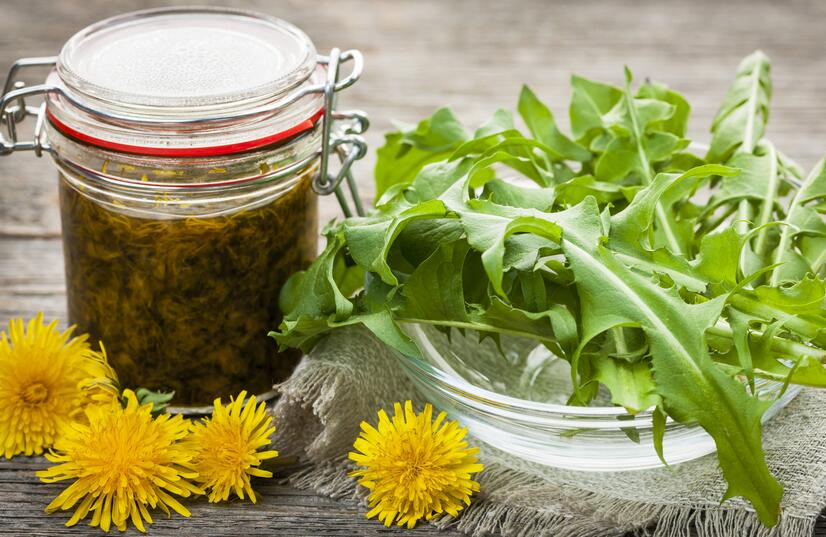
FAQs
1. How should dandelion be consumed to enjoy its health benefits?
Dandelion can be consumed in various ways to enjoy its health benefits. The leaves can be eaten raw in salads or cooked like spinach.
The flowers can make dandelion wine or tea, while the root can be roasted and ground to make a coffee substitute. Dandelion supplements are also available in capsules, tablets, and tinctures.
2. Can dandelions interact with medications?
Yes, dandelions may interact with certain medications, including diuretics and blood thinners. It is essential to talk to your doctor before using dandelion as a natural remedy, especially if you are taking medication or have a medical condition.
3. Is it safe to use dandelion during pregnancy?
Pregnant women should avoid using dandelion, as it may cause uterine contractions. Dandelions may also interact with certain medications used during pregnancy, so it is best to consult with a healthcare provider before using dandelions during pregnancy.
4. Is it safe to consume dandelion supplements?
A5. Dandelion supplements are generally safe for most people when used in moderation. However, some people may experience side effects such as upset stomach, diarrhea, or allergic reactions.
It is best to consult with a healthcare provider before using dandelion supplements, especially if you are taking medications or have any underlying medical conditions.
Conclusion
Dandelion is a versatile plant with many health benefits. It is a rich source of vitamins and minerals, including vitamins K, A, and C.
Dandelion can improve digestion, support liver health, reduce inflammation, and promote weight loss. It may also help to lower blood pressure, relieve joint pain, and improve skin and eye health.
Dandelion can be used in various ways, including as a food, drink, or supplement. While generally safe, dandelion may interact with certain medications and should be used cautiously.

